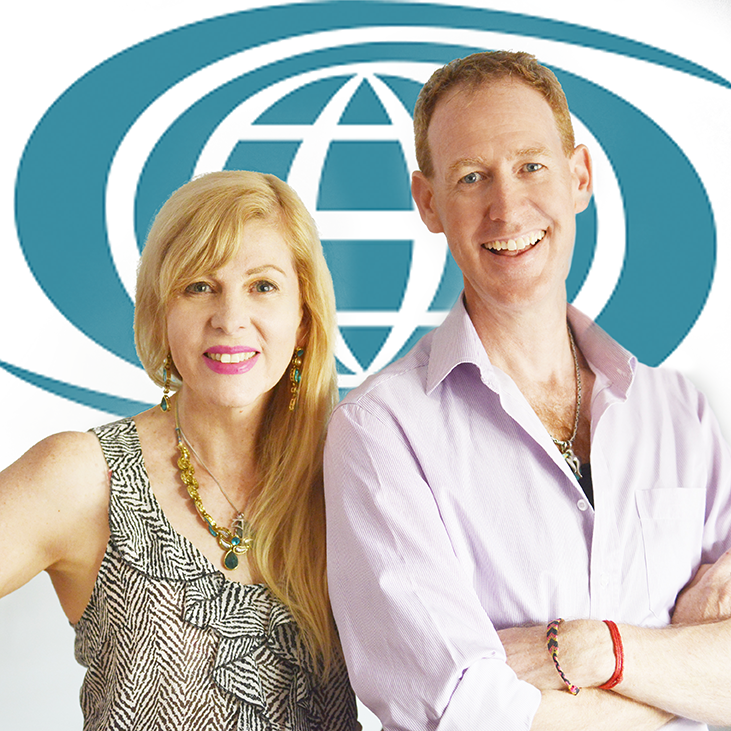Align Your Biological Clock

Your circadian rhythm is your sleep/wake cycle or body clock. It’s the natural, internal system that’s designed to regulate feelings of sleepiness, hunger, and wakefulness over a 24-hour period. This complex timekeeper is controlled by an area of the brain that responds to light, which is why humans are most alert while the sun is shining and are ready to sleep when it’s dark outside.
It’s essentially what modern science now calls our biological clock, or body clock, and is linked to how our genes and hormones operate.
Our biological clock is controlled by a ‘master-clock’ in the brain – this varies between individuals – some people are ‘night owls’ and others are ‘morning fowls’ – we know that there is a genetic basis for these differences.
Scientists have found our body clock preferences change through life. When we are young and the very old tend to wake up earlier and teenagers’ body clocks tend to make them wake up later.

Our body clock tells us when it’s time to eat, sleep, wake up and many of automatic functions in the body.
- Key hormones:
- Cortisol levels build up in our body while we sleep and signals to us that it’s time to wake up. Have you ever noticed that you wake up every morning at the same time? Or just before your alarm goes off? This is because of your hormones!
- Ghrelin is produced by the stomach; it promotes appetite, uptake of food and storage of fat. It tells our brain that we’re hungry and it’s time for lunch!
- Leptin is produced by fat cells when we eat and signals to the brain that we’re full. Leptin deficiency leads to obesity as people don’t know when they’re full and should stop eating. This shows that obesity has a genetic basis and isn’t always due to lifestyle.
- Melatonin is higher in the evening and at night when we are asleep. It makes us feel tired and reduces our body temperature – helping us fall asleep. Disrupted pattern of melatonin is why we suffer from jet lag when we travel to a different time zone.
The circadian biological clock is controlled by a part of the brain called the Suprachiasmatic Nucleus (SCN), a group of 20,000 neurons in the hypothalamus that respond to light and dark signals. From the optic nerve of the eye, light travels to the SCN, signalling the internal clock that it is time to be awake, to eat or go to sleep The SCN signals to other parts of the brain that control hormones, body temperature and other functions that play a role in making us feel sleepy or awake.
In the mornings, with exposure to light, the SCN sends signals to raise body temperature and produce hormones like cortisol. The SCN also responds to light by delaying the release of other hormones like melatonin, which is associated with sleep onset and is produced when the eyes signal to the SCN that it is dark. Melatonin levels rise in the evening and stay elevated throughout the night, promoting sleep.

In the early morning, between 2:00am and 6:00 am, is an ideal time to meditate. You can connect more easily to stillness and peace when there is less activity outside you and your environment is quiet.
In the afternoon between 2:00 and 6:00 pm, it’s energy, a great time to do creative endeavours. The afternoon cycle we are naturally more playful and light.
In the morning, between 6:00am and 10:00 am, we want to do breathing techniques into the body to nurture and awaken the physical body and stretch.
In the morning, from 10:00 am to 2:00 pm, is the time when our digestive is highest. This is the time ideally to have your largest meal of the day. After 2pm you should be eating lighter meals, not rich or heavy carbohydrate meals. This is best for detoxing, losing weight and for optimal health.
In the evening, we want to be in bed by 10 pm, so that as the our body’s repair, restore and healing begins to ignite, when we are asleep and can allow for full processing of the day to occur on an involuntary and cellular level. Eat your largest meal of the day during afternoon.
Eat an earlier, lighter dinner to allow the proper digestion, metabolism and elimination. Evenings are the time your body starts to focus on cell repair and not be taxed with digesting heavy food or sugary beverages including alcohol.
Schedule your most physical or analytical tasks during the daylight hours.
During the evenings, after 7pm we are best suited to wind down our day, our digestive system slows down and flow with the heavier energy to move us toward sleep. After 10pm our digestive system is at its slowest so eating and drinking late will often result in weight gain as the body’s system is not working at its optimal to digest and metabolise the nutrient and eliminate the wastes.
Our bodies naturally have less energy from 9pm of day precisely because we are getting ready to go into rest and repair mode.
Exercise in the morning or no later than 7 pm to allow your body to wind down and prepare for bed, otherwise you may have broken sleep or have difficulty getting to sleep.
Invite the heavy, sleepy feeling that is natural in the evenings by taking an evening bath or shower and practicing warm oil massage, using warm olive oil.
Turn off your screens, TV, mobiles, laptops and reach for a relaxing book before 9:00 pm at the latest as the electromagnetic field and light may affect your sleep.
Go to bed before 10:00 pm.
Keeping our daily habits in sync with the 24-hour circadian rhythm of our bodies is of paramount importance for our health and longevity. It’s so important in fact that 3 scientists were awarded the Nobel Prize in 2017 for their body clock studies. The research indicated that the misalignment between a person’s lifestyle and the rhythm dictated by an inner timekeeper, being out of sync with your biological clock may affect your well-being and over time could contribute to the risks for numerous diseases and weight gain.
Many researchers think medicine would be safer and more effective if it were practiced not according to a clock on a wall but the body clocks inside patients. Proponents of the idea call it circadian medicine, and evidence suggests it could boost the effectiveness of present and future treatments, not only prescription medications but also for surgery and radiation therapy.
Circadian disruptions such as jet lag put us in conflict with our natural sleep patterns, since the shift in time and light cues on the brain forces the body to alter its normal pattern to adjust. This is why jet lag can leave you feeling poorly and having more difficulty thinking and performing well. But these symptoms can also occur in everyday life, when the circadian rhythm is disrupted by keeping long and irregular hours. Because of this, it is important to keep a regular sleep schedule and allow plenty of time for quality sleep, allowing these two vital biological components to help us perform at our best and for optimal health.







